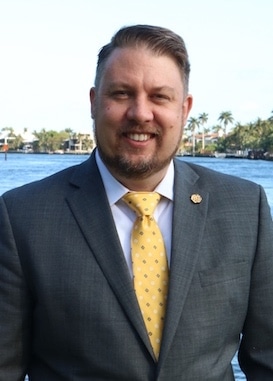Sometimes people say things that make you question who you are what you believe. I think that that can be a good thing. Once, after talking for a long while with my dad about what I believed that God was doing in my life, he said to me “You know, the thing that is so convincing about your faith is that you are so skeptical of it.”
When he first said this I wasn’t sure how to respond. I knew that he meant the comment as a compliment but I struggled to see how it was one. It has literally taken me years to process that statement and I’m not sure that I’m done with it yet. But I think that I have come to understand that doubt is important to faith.
At first glance, saying that doubt is important to faith may seem to be a contradiction. Doubt after all is supposed to be a “status between belief and disbelief that involves uncertainty or distrust or lack of an alleged fact, an action, a motive, or a decision.” Additionally, Doubt often brings into question some notion of one’s perceived “reality.” But, when we consider that faith is belief that is not based on proof, the role of doubt seems more plausible.
Think of it this way: What in this life can one ultimately prove? We believe things because we see repeatable evidence conveyed but we do not ultimately know the truth. We believe things to be true but, if we are honest about it, we could ultimately be right or wrong. The word “knowing” can imply that we are certain or sure that whatever we believe is unquestionable, indisputable. Call me a heretic if you will but that isn’t how I experience faith or belief. I perceive faith and belief to require doubt in humility.
Put another way, I recently heard someone ask: “What is more conducive to faith and belief – certitude or doubt?” If one is convinced that they are right about something then there is no possibility for something else to potentially be the case. If one doubts their own certitude then they allow the potential for God to show them something different. The distinction is between making oneself an absolute god or, in humility, allowing the possibility for God to exist in our lives. Allowing for such a possibility of God then allows our reality to be changed insofar as we admit that we may have something yet to learn.
Personally, I think that the Church’s certitude on various issues is one of its greatest stumbling blocks to believers and seekers. We often act as if we have all of the answers to all of the questions instead of simply admitting that we too like St. Thomas and St. Peter (and all the disciples as far as we are told) have our doubts and are simply seeking to increase or faith so as to better believe.
To act as if we know everything is usually just a play for power and control. Other times it is simply our inability to humbly admit that we, ourselves, are not perfect. Either way, I think that much of the decline in the modern church is that people are getting tired of frauds and they believe that there has to be a better way to seek God than in unwavering pride.
So fellow doubters, please hear me. Jesus created the church for you. Please, I beg you, come and reclaim your part in it.






























This is probably the best thing I read on your website and the one with which we can most closely agree – if you really believe it. It reminds my of a favorite quote from Andre Gide, Nobel Laureate, who said, “believe those who are seeking the truth; doubt those who find it.”